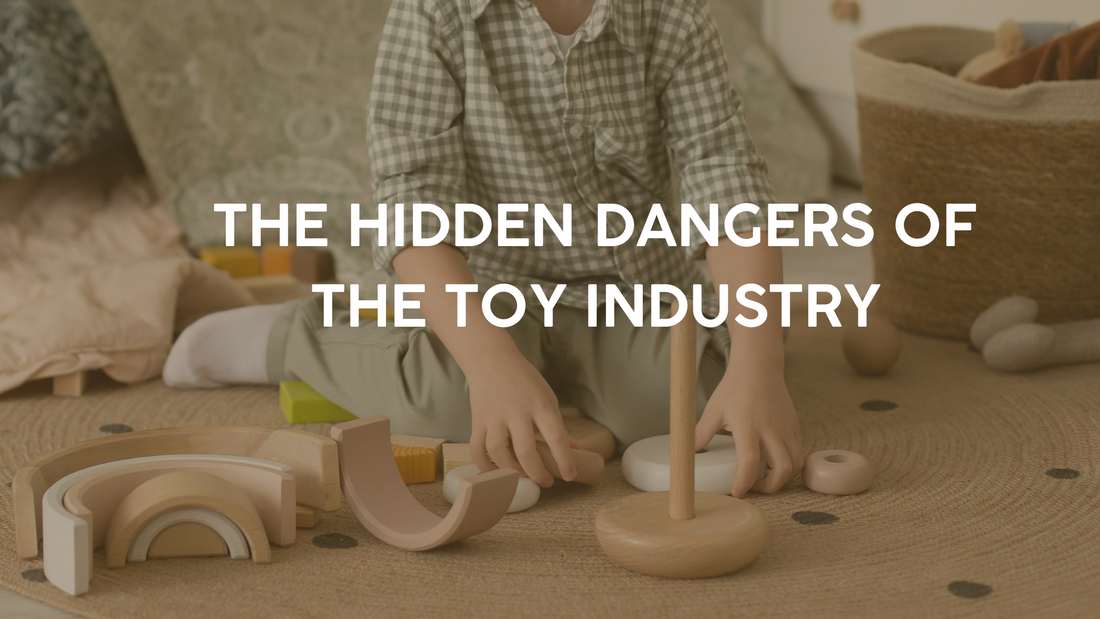
When we think of toys, we envision the joy and nostalgia of our own childhoods, filled with colorful action figures, dolls, games, and puzzles. As parents, we aim to pass on these experiences to our children with the very best toys. However, there is a hidden, darker side to the toy industry that many are unaware of.
The Plastic Plague
The toy industry is the leading consumer of plastic worldwide, producing billions of toys each year, most of which are non-biodegradable. These plastics pose severe environmental hazards when discarded, contributing significantly to landfill waste and emitting substantial greenhouse gases during production. Moreover, microplastics—tiny particles that degrade from larger plastic items—are increasingly infiltrating our waterways and food chains, posing serious ecological and health risks.
Marketing Madness
Another concerning aspect is the aggressive marketing tactics directed at both parents and children. The toy industry thrives on the idea that children need a constant influx of new toys for proper development. Advertisements prey on parental fears, suggesting that a child's happiness, intelligence, or social skills may suffer without the latest toy. However, research suggests otherwise: children benefit more from quality engagement and imaginative play rather than an excess of toys, which can lead to sensory overload and superficial play. At Keiki Krate, our desire is to curate toys that are eco-friendly and of high quality that can be passed down to siblings, as well as family activity kits that encourages the entire family to spend quality time making treasured memories.
Intentional Toys
In response to these issues, there is a growing movement toward intentional toy purchasing. This involves choosing toys based on their long-term value, environmental impact, and educational benefits rather than immediate appeal. Here are some tips for intentional toy buying:
- Quality Over Quantity: Focus on a few durable, versatile toys rather than a large number of disposable ones.
- Eco-friendly Choices: Select toys made from sustainable materials like wood or organic fabrics.
- Educational Value: Choose toys that encourage creativity, critical thinking, and problem-solving, providing lasting developmental benefits.
Conclusion
While the toy industry brings happiness to many children, it also harbors significant issues, from environmental damage due to plastic waste to manipulative marketing practices. Parents have the power to make a difference by choosing toys thoughtfully and supporting brands that prioritize sustainability. By doing so, we can ensure that our children's playtime is not only enjoyable but also responsible and sustainable. After all, the toys we buy today should not jeopardize the world of tomorrow.
Thanks for helping to steward our planet.

